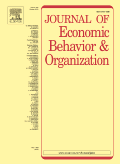
We study the interaction between risk-taking and skewness-seeking behavior among a demographically diverse sample of French adults using an experiment that elicits certainty equivalent over lotteries that vary the second and third moments orthogonally. We find that the most common behavior is risk avoidance and skewness seeking. On average, we find no interaction between the two, and a weakly significant interaction only in some segments of the population. That is, in most cases, skewness seeking is not affected by the variance of the lotteries involved, nor is risk taking affected by the skewness of the lotteries. We also find a significant positive correlation between risk-avoiding and skewness-seeking behavior. Older and female participants make more risk-avoiding and more skewness-seeking choices, while less educated people and those not in executive occupations are more skewness seeking. Estimated decision models show that utility curvature, likelihood sensitivity, and optimism can explain the observed behaviors.
